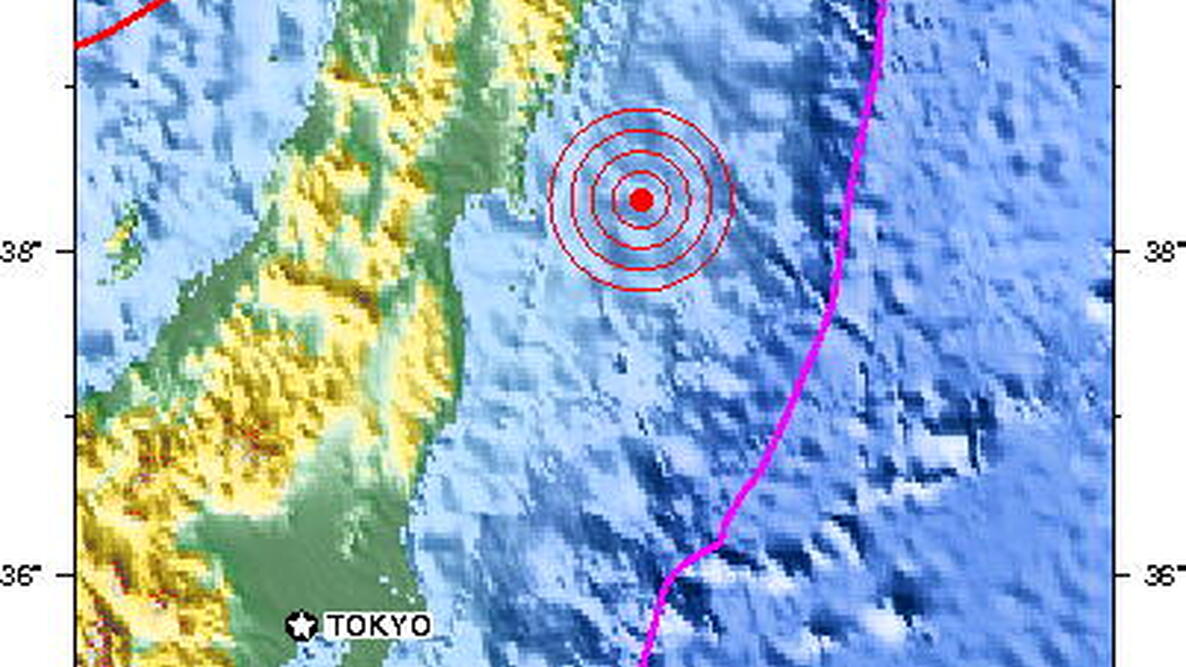
Subhead
Can weather and earthquakes impact each other?
I firmly believe that the earthquake in Japan has had an impact on the wind and weather patterns on a global basis. Since the earthquake the wind here in northern Arizona was constantly blowing night and day, usually it would only blow during the day, since the earthquake it frequently blew throughout the night as well. It has also been colder. I believe that the westerlies may have changed both in speed and air flow patterns. I have tried to find a website where I could see how the westerlies would have normally blown and how it has changed since the earthquake. I believe that it was not the earthquake that created the atmospheric changes but rather the tsunami and the winds created by the tsunami. I believe that the polar winds may be blowing farther down closer to the equator than normal. This would create significant weather changes throughout the globe...increased tornados, flooding, faster ice cap/glacier melting. I predict severe weather phenomenon on June 27,2011 and November 3 of 2011.
Along with the rapidly rising gas prices I am recommending that people winterize thier homes now...before winter. I believe that the forthcoming winter will arrive sooner, last longer and be tremendously more severe than of winters past. Increased Ice storms, power outages, severe food shortages and extreme gas prices will have a devasting effect on the American economy.
I've researched HAARP, and found Earthquake clouds were photographed in China before the large Earthquake happened; around the time of the Olympics. Many questioned the meaning of these "full spectrum" vapor clouds in the sky. Truly an interesting phenomenon. This has sparked many to come to their own conclusions.
Will the impact of the giant event in Japan affect or alter weather?
The short answer is "No".
The more complete answer is:
Many events change Earth's axis, rotation and geography by small to minuscule amounts. The "butterfly effect" metaphor illustrates the concept of sensitive dependence on initial conditions that is part of chaos theory - the concept being that even a tiny change at one place in a complex system can lead to large changes over time.
And so, we can't completely rule out that the changes to the Earth from the earthquake and tsunami will significantly alter the weather or even the climate.
I can even postulate a mechanism whereby this might happen. Since the main island of Japan has shifted 2.4 meters and there are various changes in the sea floor, it is not impossible that this could shift the prevailing marine currents, which could result in an alteration of the prevailing atmospheric patterns, resulting in a change in both the weather and the climate. As these patterns in one part of the world change, they would alter the patterns in other parts of the world. And so, it is not impossible that this would result in a significant change in global climate.
However, every day there are billions or trillions of butterfly wing flaps, not to mention all the other localized occurrences (like my getting my mail or opening and closing my car door). Each of the trillions of trillions of trillions of tiny events that happen every day has the potential to amplify and, through the "butterfly effect", change the earth's weather or even its climate. But, ALMOST without exception, they don't.
And while the construction of a building certainly alters the local weather in some way (even if only to change the wind so it blows around the building rather than through it), it ALMOST never changes the earth's climate.
So, can I state unequivocally that the events in Japan won't change the earth's weather and climate, potentially even to the point of bringing on a new ice age? No, I can't say that.
But I can say that while it's not impossible, the odds of it having any noticeable effect are so low that the short answer is "No".
What if a series of earthquakes on the ocean floor happened at once,could that change the weather?I mean it would have to change the currents,which is the basic element of the weather cycle right?And not just around japan but all around.










Comments